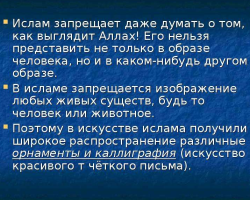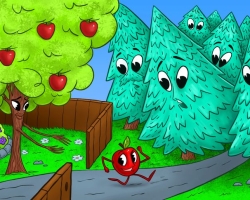Many people think that the country and the state are the same thing. But this is not so, read in more detail in the article.
Content
- What is a country and state: definition
- Is the country and the state the same thing, what's more?
- What is the difference between the country and the state: comparison, examples
- Is any state a country?
- Video: What is the state?
- Video: the state is not a country or a homeland
- Video: What is the state?
Concepts "country" and "state" Often perceived as synonyms. In colloquial speech, this is permissible, but in general, this identification is erroneous, and in some cases it is used for political manipulations. Therefore, you should understand the content of these concepts.
Read on our website another article on the topic: "The largest countries, the states of the world in the square". You will find information about the top 5 giant countries.
Below this article describes such concepts as "country" and "state". We will tell you how they differ, and also give examples and comparison. Read further.
What is a country and state: definition

Country -This is a separate territory whose population has a kind of historical and cultural community. The country is inherent in geographical (relief, climate, natural wealth, etc.) and cultural characteristics (language, mentality, ethnic characteristics, traditions). The concept of the country implies political isolation, but not a system of power.
State - This is the political organization of society. The main features of the state are the presence of a system of bodies of supreme power and legal norms, as well as sovereignty.
Thus, the country is primarily a geographical and sociocultural concept, the state is political.
Is the country and the state the same thing, what's more?
If the country and the state are not identical concepts that contain different characteristics of society, then can they coincide at least through the territory?
- They can, if the power of one state applies to one country.
- However, the country can be politically divided. For example, Korea since 1945 has been divided into two states - North and South Korea. From 1949 to 1990, Germany was represented by two states - the GDR and Germany, although there was one country.
- There is also a reverse situation when one state includes several countries.
In general, the state is not a territorial concept, so the question of “more” is not too appropriate here.
What is the difference between the country and the state: comparison, examples
So, on the basis of the foregoing, you already realized that the country and the state are different concepts. But how exactly do they differ? Below is a comparison described and examples are given.
Concept "country" Includes:
- Specific geographical territory.
- General historical and cultural values \u200b\u200bof the population.
- Features of ethnic -language identity.
- Socio-economic and political isolation, regardless of the presence of sovereignty.
State characterize the following signs:
- It is a political system of power.
- It has a clearly organized management mechanism and the system of authorities, institutions and officials endowed with power.
- It has a structured fixed system of legal norms and laws.
- Always sovereign (independently).
The main function of the state is the management of society using laws. Forms of the state system can be different, but it is precisely the power structure, and not the territory itself. The country is a less official concept: this is the homeland, the native side, the father, the place of residence of people with a certain identity.
Not every country has its own state. For example, colonies do not have sovereignty and are part of the metropolis. The occupied countries or unrecognized states (Taiwan, Northern Cyprus, Transnistria and others) are also not considered states.
Is any state a country?

Not every country is a state, but rather? The above examples of divided Korea and Germany show that the country can have two different states. Empires existing since ancient times show that the state may include several countries. So, the British Empire during its heyday united about fifty colonies under its rule. Among them was, for example, India - a country with an undoubtedly original history and ethnocultural origin, but did not have a sovereignty at that time. She was not part of the country of Great Britain, but was part of the British Empire as a state.
The concepts of the country and the state, on the one hand, are close enough, are interconnected through the concept of society, but the differences between them are very significant. In some contexts, their mixing is possible, but it is important to understand what is their specifics in order to prevent mistakes. After all, the native land and the political system are still not the same thing.
Video: What is the state?
Video: the state is not a country or a homeland
Video: What is the state?
Read on the topic:
- In what year and in which state did Darius are the first?
- What is it called, is it written - Belarus or Belarus?
- Why is the Constitution of the Russian Federation it is customary to call the law of higher legal force?
- Reforms of Peter I: Conditions for reforms, the main reasons
- What states are in East Africa?







